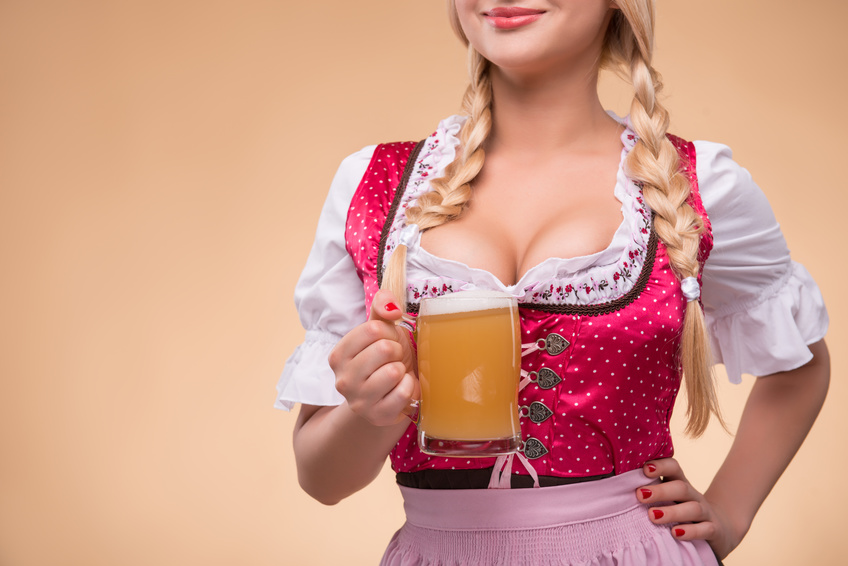
For Americans or Germans, having a business lunch in France is synonymous with taking a long break to go eat somewhere. Since it does little to advance the business at hand, they consider spending two hours eating as a symbol of foolish French pride. But this is a big mistake! In this post you will learn why time spent at a business lunch in France is a good investment.
The business lunch’s place in a cultural context.
The French, when they first arrive in the United States, are shocked by the lack of interest paid to food here. They see Americans eating in a hurry, often using their fingers. One in four Americans eats fast food every day, and according to a 2012 study, 20% of meals in the United States are consumed in vehicles.
During a business lunch in Germany, it is common to provide sandwiches instead of going out to eat elsewhere. German sandwiches are small, fresh rolls sliced in two and covered with ham, mortadella or cheese. Their goal is to refuel themselves with minimal interruption to the meeting.
Germans and Americans misunderstand the significance of a French business lunch that can easily last for two hours. From an Anglo-Saxon perspective, the fundamentals of time management and efficiency are at odds with French lunch breaks.
In France, calorie intake is only a secondary aspect of a meal. On the contrary, the meal plays an important role in developing and maintaining personal relationships. And what better way is there to build a relationship than by spending time together sharing a good meal and a glass of wine?
The principal objective of the meal is therefore not to eat, but to connect on many levels: to learn about each other, to understand each other, to evaluate and even anticipate responses during a meeting, as well as to expand each other’s informal network of information.
The importance of context in communication in France
Edward T. Hall, an American anthropologist considered as the father of intercultural studies, established a distinction between low context communication and high context communication.
In high context communication, information is continually shared. It’s the kind exchanged during a business lunch for example. This kind of communication lends itself to providing informal information, unrelated to the business at hand.
In these exchanges, participants have a lot more irrelevant information at first glance. When the time comes, it helps to speed up decision-making as it reduces the amount of information to exchange. High context communication, which is the norm in France, confounds both Germans and Americans who are accustomed to more precise communication.
The United States and Germany use “low context” communication. The participants’ collective knowledge is weaker, as they only communicate about pertinent, current topics. They are used to exchanging detailed information only when it is necessary, so communication is very detailed and direct; updates are provided only when required.
The role of a business lunch in France
Germans and Americans need to understand that the French don’t place as much value on the agenda, but on the relationships established when sharing a meal. They go through great lengths to choose the right restaurant, translate the menu as best possible to foreigners, and provide good advice about wine and food pairing. This also demonstrates the importance they place on you and their interest in developing a long-term relationship with you.
Imagine inviting your fiancée to a restaurant to ask her to marry you, or your husband to tell him he’s going to be a father. In both cases, you want a wonderful moment that they will long remember with emotion. With meals in France, it’s the same thing. It’s about creating positive moments that show the importance placed on another.
For the French, food is an art
In 2010, France was the first country to have its culinary traditions recognized by UNESCO as one of the Masterpieces of the Oral and Intangible Heritage of Humanity. Here’s UNESCO’s definition of the French gourmet meal:
“A gourmet meal must follow a well-defined pattern: it begins with an aperitif and finishes with a digestif, with at least four courses between them, including an entrée, a fish and/or meat with vegetables, cheese and a dessert.”
The Germans build almost impeccable cars and machines because they are detail-oriented and seek perfection. The French are no different when it comes to meals, whether it’s a business lunch or a family meal. Apart from the cooking, itself very orchestrated, a meal obeys immutable rules about the number of dishes, the order in which they are presented, the table setting (take a look at the diagram below) and the seating plan (alternating men and women, for example!)

Presented in this context, the French don’t believe that spending two hours in a restaurant is a waste of time, rather an investment.
On one hand, the right restaurant, the right foods and wines are intended to provide the participants a relaxed atmosphere fostering good conversation. On the other hand, it highlights an important aspect of French culture: the importance of its cuisine. Do not overlook national pride and be sure to compliment your host. They will be very appreciative.
Impress them with your knowledge of French expressions related to food
Making small talk about food is an excellent idea. The French are unfailing when it comes to restaurants, wines and great meals.
So if you want to please your partner during a business lunch in France, don’t forget to praise the restaurant and its food by describing it with words such as: delicious, succulent, exquisite, fine, smooth, flavorful, copious, etc.
Also don’t forget the many French expressions relating to food. If you speak French, learn a few of these, as they could be useful and help you shine during a business lunch in Paris:
– Les carottes sont cuites (it’s too late to change anything)
– Être fauché comme les blés (being broke)
– Vouloir le beurre et l’argent du beurre (wants to have it all, without doing anything for it)
– Oeil au beurre noir (a black eye)
– Pédaler dans la choucroute (being ineffective)
– Mettre du beurre dans les épinards (improve your situation)
– Rouler quelqu’un dans la farine (to fool or lie to someone)
– Rentrer dans le lard (violently attack someone)
(for more culinary metaphors, click here)
French cuisine is everyday enjoyment
Unfortunately, many people outside of France believe that French cuisine consists of small sophisticated portions served in expensive restaurants.
However French cuisine is also, and especially, tasty dishes made from fresh market supplies, with homemade sauces, and are recipes lovingly passed along over time from generation to generation.
Eating in France is synonymous with pleasure. The French express their satisfaction by making little noises like “Ummm!” or by using sensual adjectives to describe their fondness for a particular taste. The “Ummm!” is a sigh of delight, with more “m’s” to denote greater enjoyment!
Being invited to a good restaurant by your French partner is an opportunity to learn more about his/her culture, to discover their cuisine and to enjoy your time with him/her. Do not spoil it and know how to appreciate it. Don’t force the conversation, let your partner initiate it. You will see, over the long term, it will be two hours well spent.
Foto credit by © Zarya Maxim





One must eat and drink to survive? French did gastronomy and fine wines. One must dress to bear cold winter winds? French did Haute-couture. One must build a house to protect the family from all sorts of threats? They did Châteaux de la Loire. One must keep clean to socialize? They did Chanel N°5. One must catch a train? Let’s go for TGV. One must catch a flight? Get onboard Concorde and who cares about tacky ROI. Time is money? Let’s be 15 minutes late! This is freedom. And so on…
French aim at being an expection, the best or the worst, but never the average. All about this “little bit more” that makes luxury a lifestyle.
And a super global business.
I love this one! Thanks for sharing Charles.
Yes, yes, and yes! I couldn’t agree more with the others who made comments, and appreciate your explanation of the importance of dining in the French context. Having lived and worked in France, I learned that the relationship building always preceded the ability of doing business.
Thank you Marion.
Only people who have not experienced these would say that. It is often business meetings that are a waste of time. The real deals are done ‘ à table’.
Exactement, merci Matthew.
Eating well gives a spectacular joy to life and contributes immensely to goodwill and relationships.
Thanks for sharing the cultural nuances!
You’re always welcome Monika!
I remember vividly my first business lunch in France. Working with 2 sales people from our French subsidiary, they proudly selected a restaurant in the country side and we ate a meal typical of something we’d eat in the U.S. on a special holiday, including a bottle of wine. For them, it was an important part of building a relationship with me.
Did you feel the same way? Or thinking it was a waste of time?